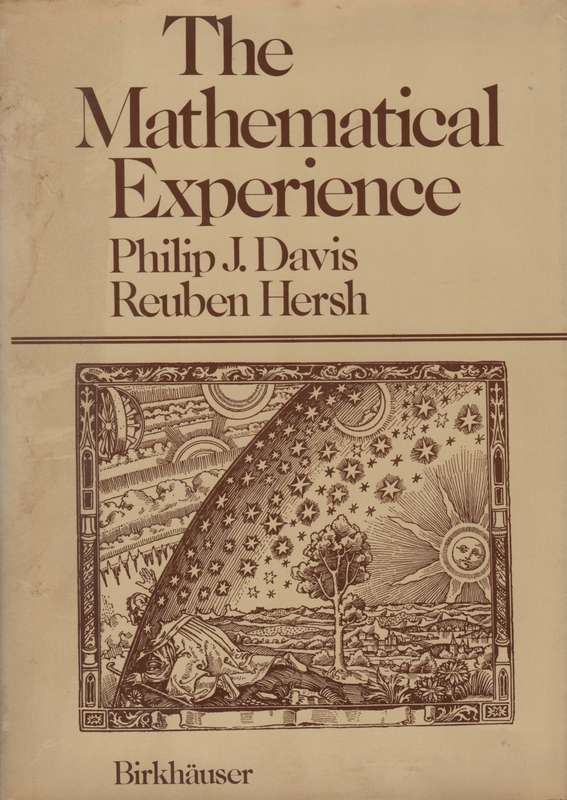"One of my pet peeves is the belief that "creative" people are those who study the humanities and that "analytical" types (as if "analytical" must somehow stand in opposition to creativity) are those who study sciences and mathematics. Perhaps this belief stems from a mathematics education grounded in rote, memorization, and dull exercises. This book is about mathematics, but takes a much more philosophical tone, exploring the concept of proof and truth, the history of math, and the process of discovery/invention of new ideas and theorems. I enjoyed it very much.
The book takes the form of several essays, averaging a few pages long each. I particularly enjoyed:
- "Unorthodoxies," about crank ideas but also the possibility of valuable ideas appearing to be cranks at first. "The doors of the mathematical past are often rusted. If an inner chamber is difficult of access, it does not necessarily mean there is treasure to be found therein."
- The chapter on the Chinese Remainder Theorem, a really fantastic survey of the same idea as seen through different mathematical lenses over history.
- "Nonstandard Analysis" was a thought-provoking essay about the history of the infinitesimal dx - like most present-day people I had learned it as expressed in terms of limits (the Weierstrassian "reformation," as it were) but had no idea of the infinitesimal's controversial use in other proofs. Challenges the concept of rigor, as practically useful results were "proved" in non-rigorous ways; of what use, and how much use, is rigor, and what is the role of intuition? (This was a far better exploration of the topic than the chapter devoted explicitly to intuition.)
- The essays towards the end hammer a little over-long on the distinctions between Platonism (mathematics is universal, immutable truth "out there" that we discover), constructivism (we invent mathematics, and objects must be constructed for their existence to be proved), and formalism (math is just a set of rule manipulations that does not encompass philosophical questions). But I did find the initial discussion of it to be very interesting.
- The two computer-oriented essays, "Mathematical Models, Computers, and Platonism," and "Why Should I Believe a Computer?" I think it would be wonderful if a mathematician with writing talents would update this book with more about how computers have influenced the development of mathematics."
We tend to think of mathematics as uniquely rigorous, and of mathematicians as supremely smart. In his introduction to The Mathematical Experience, Gian-Carlo Rota notes that instead, "a mathematician's work is mostly a tangle of guesswork, analogy, wishful thinking and frustration, and proof ... is more often than not a way of making sure that our minds are not playing tricks." Philip Davis and Reuben Hersh discuss everything from the nature of proof to the Euclid myth, and mathematical aesthetics to non-Cantorian set theory. They make a convincing case for the idea that mathematics is not about eternal reality, but comprises "true facts about imaginary objects" and belongs among the human sciences.

